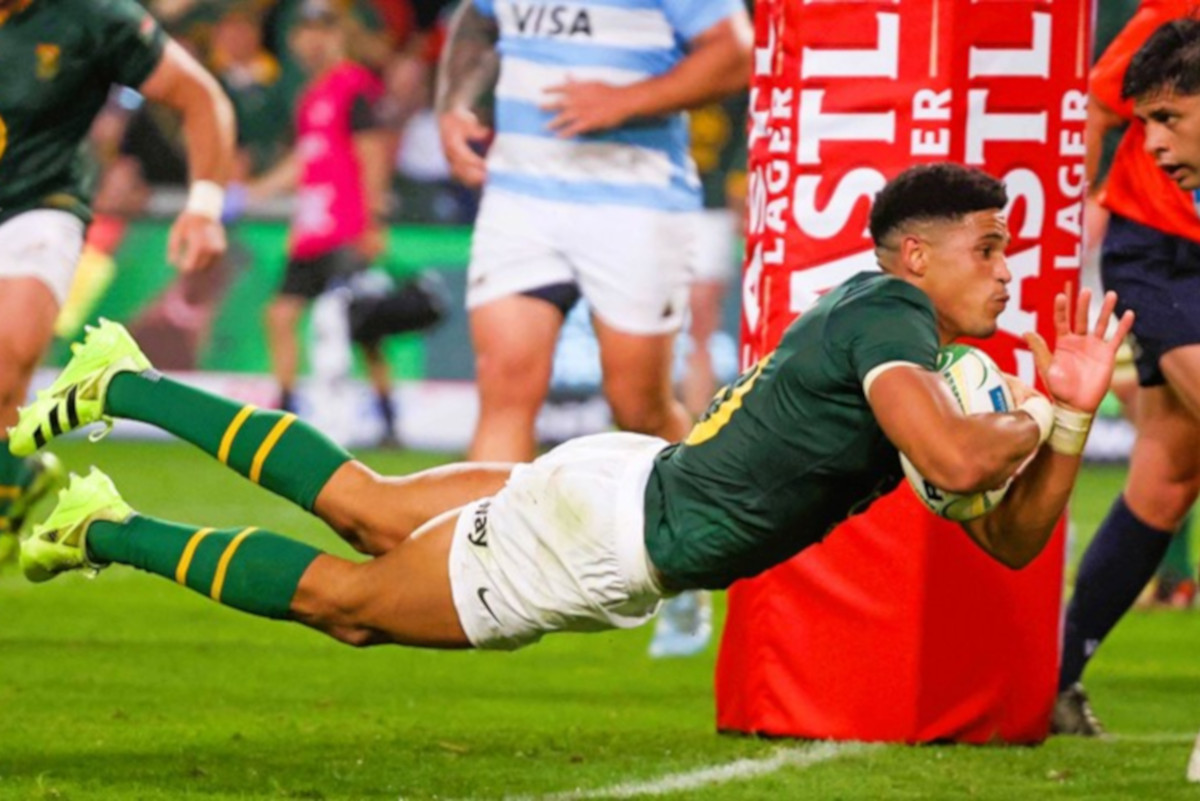
Explainer: The story behind Sacha Feinberg-Mngomezulu’s unique double-barrelled surname
Sacha’s double-barrelled surname, once impossible under apartheid, now echoes in stadiums – but there’s more to this story.

Standing in the Twickenham crowd on Saturday, you couldn’t escape hearing the same question repeated through the stands: “How do you even pronounce that?”
Sacha Feinberg-Mngomezulu’s surname isn’t just a mouthful for rugby commentators. It’s a living testament to South Africa’s journey from division to unity.
The young Springbok flyhalf carries two distinct cultural legacies in his name, each telling the story of families chosen to honour equally.
After the Springboks clinched their back-to-back Rugby Championship title with a nail-biting 29-27 victory over Argentina, fans were still puzzling over how to string together those 19 letters.
His surname bridges two worlds that apartheid once kept strictly apart.
‘Feinberg’ comes from his father’s Ashkenazi Jewish heritage, whilst ‘Mngomezulu’ connects him to his mother’s Zulu roots.
It’s the kind of name that may well not have existed in South Africa a few generations ago, yet here it is, emblazoned across a Springbok jersey.
Growing up Feinberg-Mngomezulu in Cape Town
Born on 22 February 2002 in Cape Town, Sacha grew up in the Western Cape where both sides of his heritage shaped him.
His father, Nick Feinberg, was born in England after Sacha’s grandfather, Barry Feinberg, left South Africa in 1961 following the Sharpeville Massacre.
Barry was an anti-apartheid activist, poet and artist who worked alongside ANC leaders in exile.
His mother, Makhosazana Mngomezulu, is from Johannesburg.
The two met in 2000 after Nick returned to South Africa, and their son would grow up running around the house kicking balls in the yard, dreaming of wearing the green and gold.
Sacha attended Bishops Diocesan College in Cape Town, one of the country’s most prestigious rugby schools.
He captained the first XV and later spent time as an exchange student at Llandovery College in Wales, but it was always the Springboks jersey he was chasing.
Feinberg-Mngomezulu surname: Two heritage stories in one
The Feinberg side traces back to Jewish communities who fled persecution in Europe during the late 1800s and early 1900s.
Many settled in South Africa, building new lives far from the pogroms and violence that had driven them from their homelands. “Fine mountain” is what Feinberg means when translated from German and Yiddish.
Mngomezulu, meanwhile, is a proud Zulu surname with deep ancestral significance.
Like many traditional Zulu names, it connects the bearer to their clan and family history, roots that stretch back generations across KwaZulu-Natal.
What the double-barrelled surname represents
When Feinberg-Mngomezulu’s parents hyphenated their surnames, they made a statement. This wasn’t just about paperwork: it was about refusing to choose between identities, about saying both heritages matter equally.
In South African rugby, a sport still grappling with its transformation journey, that double-barrelled surname does more than identify a player.
It challenges old assumptions about who belongs on the field and what South African identity looks like.
Every time a commentator stumbles through those syllables at Twickenham or anywhere else, they’re wrestling with the beautiful complexity of a nation still learning to embrace all its stories.
His grandfather Barry, who passed away in October 2023, eight months before seeing his grandson don the green and gold, dreamed that young children of colour could one day represent the Springboks.
Sacha has fulfilled that dream, carrying both sides of his family’s story onto rugby’s biggest stages.
